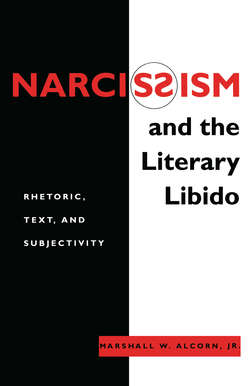Читать книгу Narcissism and the Literary Libido - Marshall W. Alcorn Jr. - Страница 12
На сайте Литреса книга снята с продажи.
TWO Self-Structure as a Rhetorical Device: Modern Ethos and the Divisiveness of the Self
ОглавлениеEmancipate yourself from mental slavery; none but ourselves can free our minds.
Bob Marley, “Redemption Songs”
Contemporary scholarship in English has begun to show an increasingly sophisticated attentiveness to the forces of politics and persuasion. It is not simply that Marxists like Terry Eagleton pronounce literary theory dead and rhetoric alive; many traditional scholars, people deeply committed to politically disinterested New Critical views of art, have begun to recognize political forces and rhetorical patterns in texts long considered distant from such concerns. In keeping with this new interest in the operations of rhetoric, it is useful to examine the traditional concept of ethos. Ethos seems especially fitted to advance an understanding of textual rhetoric because it focuses attention on a simple question often neglected by traditional literary theory: How do people persuade other people to change their values?
Although our understanding of ethos has changed over the years, one feature remains constant: Often it is not a person’s ideas but a person’s character that changes people. Thinkers as diverse as Aristotle and Kenneth Burke agree on this point. Aristotle formulated three modes of argumentative support (logos, ethos, and pathos) and discussed ethos (persuasion stemming from the personal qualities of the rhetor) as a highly effective rhetorical tool. A speaker’s character, Aristotle points out, “may almost be called the most effective means for persuasion he [she] possesses.”1 Like Aristotle, Kenneth Burke insists on the importance of the speaker’s character: “You persuade a man only insofar as you can talk his language by speech, gesture, tonality, order, image, attitude, idea, identifying your ways with his.”2 For Burke, persuasion works via mechanisms of identification or “consubstantiality.” When people identify with speakers, they can be manipulated into accepting their ideas and values. For both Aristotle and Burke a key impetus for persuasion lies, not in a conscious response to logical and factual reasoning, but in the prior (more primitive, and often unconscious) gesture of identification.
In many ways identification is a fundamental narcissistic gesture. We identify with people we want to be like; we want to imagine ourselves as better or more powerful by assuming the properties of people we admire. Our identifications, because they demonstrate our need for a desirable self-image, are narcissistic modes of desire. Aristotle’s insistence on the importance of ethos and Burke’s insistence on the gesture of identification thus give powerful support to an argument linking narcissism to rhetoric.
